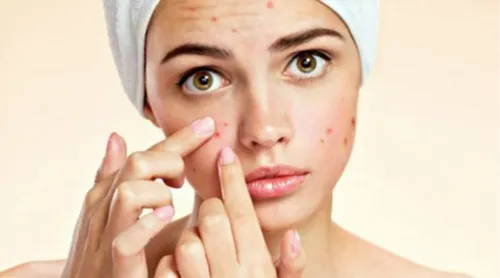Acne is one of the most common skin conditions that affects people of all ages and genders in India and across different countries. Patients suffering from acne would usually experience symptoms such as pimples, blackheads, whiteheads, and inflamed nodules.
Patients can find many acne treatments, including over-the-counter medications, making it hard to determine the most effective one for individual skin concerns. In this guide, we provide some necessary and effective directions for the best acne treatment.
The different acne medications
Acne occurs when oil and dead skin clog the hair follicles, providing the perfect environment for bacteria to breed, hence the development of acne lesions. They are especially common in teenagers undergoing adolescence because of hormonal changes. Some medications for acne include:
Over-the-counter (OTC) medication
This refers to the type of medication patients opt for that is not necessarily prescribed by a specialist. They are usually readily available and contain components such as;
Benzoyl peroxide: This ingredient helps unclog the pores and reduces the bacteria breeding on the skin. It is available in different forms, including creams, gels, and cleansers, and can be used to treat mild acne.
Salicylic acid is a beta-hydroxyl acid that is effective for blackheads and whiteheads. It is used to exfoliate the skin, remove dead skin cells, and prevent pore blockages.
Alpha-hydroxyl acids (AHAs) are used to reduce acne lesions and improve skin texture. They come in different types, including glycolic and lactic acids, and are used as mild exfoliants.
Prescribed medications
These are the medications prescribed by a specialist such as Dr. Rinky Kapoor to treat specific types of acne, depending on the patient’s skin concerns. They include;
Topical retinoids: these are vitamin A derivatives and include tretinoin, adapalene, and tazarotene. They are most effective at unclogging pores, reducing inflammation, and promoting skin cell turnover.
Oral antibiotics: oral antibiotics work by targeting and reducing the bacteria that cause inflammation. Some of the common antibiotics used include doxycycline and minocycline. They are only recommended for a short period of time to avoid antibiotic resistance.
Oral contraceptives: for women experiencing hormonal imbalance, oral contraceptives with estrogen and progestin can be administered to help with hormonal regulation and reduce acne.
Isotretinoin: Isotretinoin is an oral medication administered in cases of severe cystic acne that hasn’t responded to the other types of treatments discussed above. It significantly reduces the production of sebum and can lead to long-term remission. However, careful monitoring is important to assess potential side effects.
Chemical peels
As the name suggests, chemical peels involve the application of a chemical solution that helps exfoliate the skin and stimulate skin turnover. It eventually peels off, reducing clogged pores and inflammation and improving the appearance of acne.
Laser and light therapies
Laser and light therapies involve the use of a laser to target the affected area to reduce bacteria and inflammation, thereby improving the appearance of acne scars.
The best lifestyle and skincare practices
If you are not taking care of your skin and practicing healthy lifestyle habits, then it may as well affect the effectiveness of acne treatment. Cleaning, moisturizing, and sun protection are some of the things you must include in your routine.
Diet can also contribute to the health of the skin. While research is still ongoing, some people find that diets high in dairy and sugar worsen their skin conditions, and vice versa. In the end, it is important to always consult with a skin specialist about acne problems before even trying any treatment.














